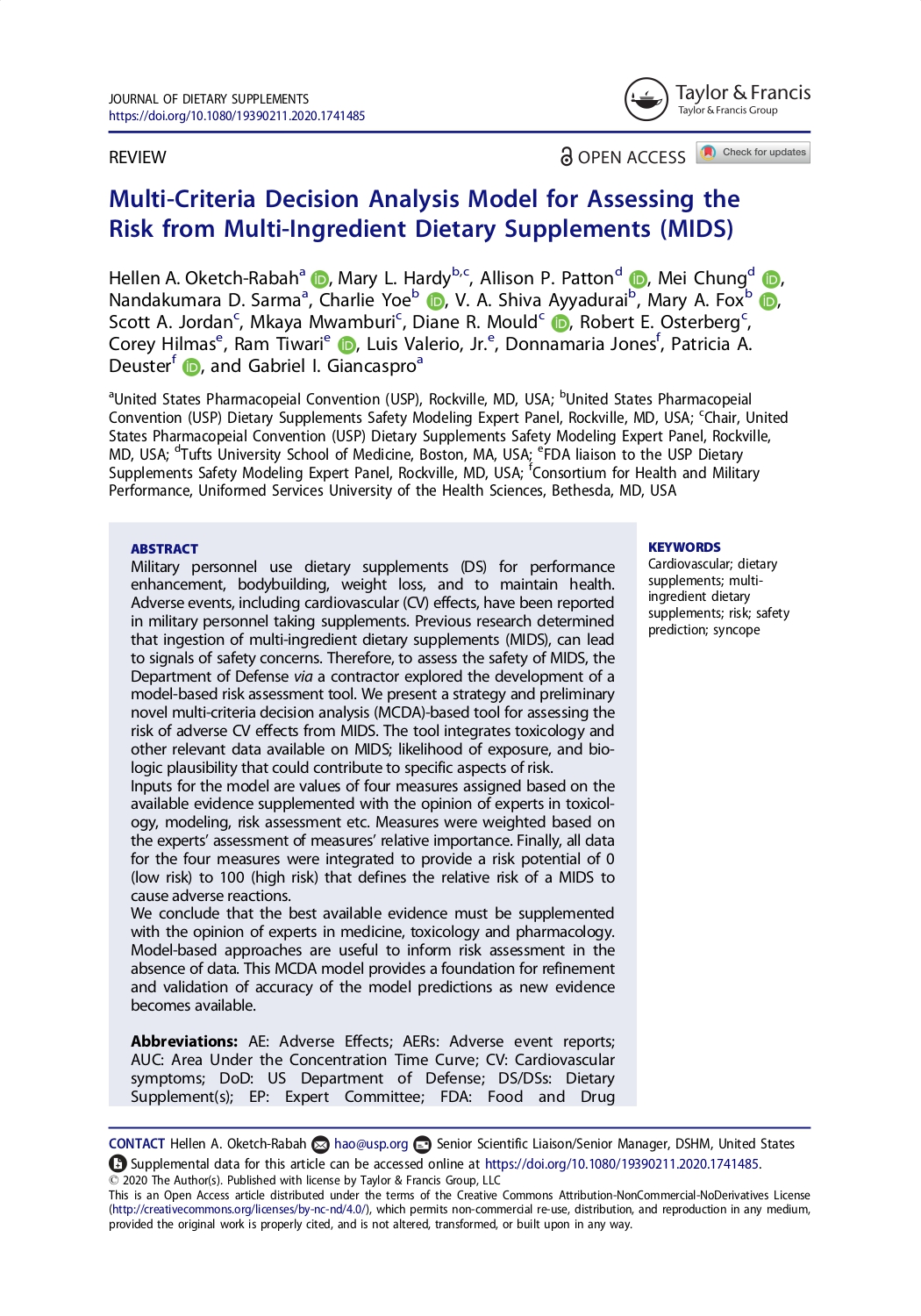Multi-Criteria Decision Analysis Model for Assessing the Risk from Multi-Ingredient Dietary Supplements (MIDS)
Hellen A. Oketch-Rabah, Mary L. Hardy, Allison P. Patton, Mei Chung,
Nandakumara D. Sarma, Charlie Yoe, V. A. Shiva Ayyadurai, Mary A. Fox,
Scott A. Jordan, Mkaya Mwamburi, Diane R. Mould, Robert E. Osterberg,
Corey Hilmas, Ram Tiwari, Luis Valerio Jr., Donnamaria Jones, Patricia A.
Deuster & Gabriel I. Giancaspro
JOURNAL OF DIETARY SUPPLEMENTS
https://doi.org/10.1080/19390211.2020.1741485
Abstract:
Military personnel use dietary supplements (DS) for performance enhancement, bodybuilding, weight loss, and to maintain health. Adverse events, including cardiovascular (CV) effects, have been reported in military personnel taking supplements. Previous research determined that ingestion of multi-ingredient dietary supplements (MIDS), can lead to signals of safety concerns. Therefore, to assess the safety of MIDS, the Department of Defense via a contractor explored the development of a model-based risk assessment tool. We present a strategy and preliminary novel multi-criteria decision analysis (MCDA)-based tool for assessing the risk of adverse CV effects from MIDS. The tool integrates toxicology and other relevant data available on MIDS; likelihood of exposure, and bio-logic plausibility that could contribute to specific aspects of risk. Inputs for the model are values of four measures assigned based on the available evidence supplemented with the opinion of experts in toxicol- ogy, modeling, risk assessment etc. Measures were weighted based on the experts’ assessment of measures’ relative importance. Finally, all data for the four measures were integrated to provide a risk potential of 0(low risk) to 100 (high risk) that defines the relative risk of a MIDS to cause adverse reactions. We conclude that the best available evidence must be supplemented with the opinion of experts in medicine, toxicology and pharmacology.
Model-based approaches are useful to inform risk assessment in the absence of data. This MCDA model provides a foundation for refinement and validation of accuracy of the model predictions as new evidence becomes available.

